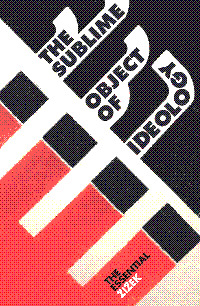
the sublime object of ideology
Slavoj Žižek
as it is becoming more and more embarassing to like zizek I have to call this a guilty pleasure. I needed a refresher on hegel and lacan so it served that purpose … though I was looking forward to the critique of post-structuralism only to find out that I haven't read enough Derrida. it was also definitely brave of The Village Voice to compare this to anti-oedipus in the praises on the back of the book. but I have become less partial to D&G's rejection of unconscious "belief"; I liked zizek's "subject presumed to" know/believe/enjoy/desire. I also thought he demonstrated psychoanalytic repetition through hegel pretty well, and the difference between hegel's and kant's sublimity will be useful for me. but I have to admit that I skimmed the last 10 pages because I didn't understand the choice to start using the most hegelanese at the point where I was getting exhausted of the book, though I did like the choice to start with comparing the logic of freud's interpretation of dreams and marx's commodity fetishism, that was a good hook for me. unfortunately, zizek wrote a good book and I enjoyed it.
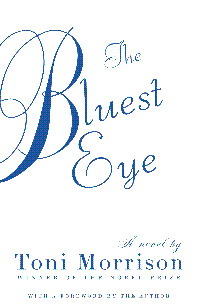
the bluest eye
Toni Morrison
it caught my interest at the passage on claudia's baby doll and then I read the rest in a fever. another unforgettable part to me was when cholly watches that man break open a watermelon; Toni Morrison writes cholly's assumption of masculinity and his hatred of women so sparingly, even innocently, that it becomes so clear that the violent men of her novel are not unique deviations from the norm but necessities of patriarchal white supremacy. and after writing this blog post I especially appreciated how faithfully she wrote of children. their dialogue feels natural and so accurate to children's logic that it shows how important it is to remember what it was really like to be a child.

orlando
Virginia Woolf
I read more translated books than books in original english but Orlando reminded me of how much I must miss in translations; I couldn't read Virginia Woolf's prose in any other way. Orlando is on a greater scale than I normally enjoy but the time moves so naturally that it feels simplier than it really is. I particularly liked when england's climate went "damp" at the turn of the nineteenth century… pale fire and orlando have shown me that books about writers don't have to be self-important (wordsworth, solenoid by mircea cartarescu). and I thought that it was eloquently put when nicholas greene was described by "the more he denounced his own time the more compacent he became" … I like how writers have always been annoying, it's just that now we have to see it unfiltered on twitter. also, I swear to god, in my notes I wrote "I might have poisoned my brain on anti-oedipus but this passage has to be their schizo on a walk," and then when I was later reading a thousand plateaus d&g directly reference "to take a walk like virginia woolf." in my review for genealogy of morals, I had a similar intuition for Deleuze and Guattari's references, and I'm proud of it…
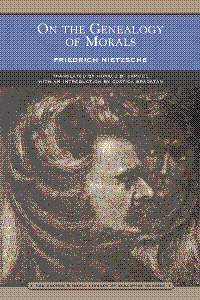
on the genealogy of morals
Friedrich Nietzsche
read to understand deleuze. on the genealogy of morals is very easy to read, and it made it obvious that it's a little counterintuitive of me to read philosophy completely backwards. though nietzsche was a lot more fun to read after anti-oedipus than it would have been otherwise; I wasn't interested in reading him before because he was either represented through nazis or 15 year old nihilists and I don't think I would have been able to see beyond that. it was especially a pleasure to realize all the allusions in anti-oedipus to nietzsche, too, like the desert of the body without organs and the bad air of the analyst's room... this quote reminded me so much of a passage from AO and when I looked back they explicitly cited it lol. but it was whiplash when he finally made it to the wider, material issue behind normative unhappiness and he thinks of race mixing and immigration... and he was so close after saying himself that guilt originated in debts/exchange...

capital: volume one
Karl Marx
click here for my article. stalled reading this ever since I was a 15-year-old "socialist-not-communist" reading the manifesto for the first time. partly because marx is called hard to read but that's because no one really reads marx. despite hegel's influence, he is really clear without being too dry or too ornamented. and despite the indimidating length, he repeats concepts when they become relevant again; his dialectic is easy to follow. you can tell at what point I read anti-oedipus because I started to bother with tabs. It will be interesting to read more of the Frankfurt school after reading the marx before them and the deleuze and guattari after them. capital is also a good reminder that women have always worked, they were just the poor ones.
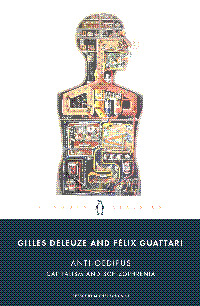
anti-oedipus: capitalism and schizophrenia
Gilles Deleuze and Felix Guattari
click here for my articles. deleuze and guattari answer the biggest question implied in lacan's third seminar: isn't there a benefit to never having symbolized oedipus? the first part was a rough read but it all clicked by the chapter "3 texts of freud." one thing I enjoyed was how they went further with the freud/marx lens by applying it to the form of the argument itself; I think it parallels marx's rejection of universal principles of economics (freud being deleuze and guattari's ricardo). anti-oedipus also answered to my suspiscions of how quick psychoanalysis was to represent the unconscious. It does feel like it should be thought of a little more abstractly... The inclusion of the preconscious was interesting too, since it's largely abandoned by lacan. I was also surprised that anti-oedipus actually convinced me against structuralism. Its optimism also surprised me knowing it was a response to the failure of may 68. I wonder what they would think about the reterritorialization of today's dsm-5... and their style inspires me to write.

phenomenology of spirit
Hegel
it took me 7 months to read. I understood at most maybe 40% of it but I think that's fair for a first read … for the first third I relied heavily on gregory b sadler but I eventually got used to hegel's writing on my own + he speaks more concretely as the book goes on. after the reason section I got bored and didn't read a page for 2 months, but I turned out to be this picture; the following spirit section was very rewarding. and now I can not only better understand marx and lacan but most importantly, dutch modern artist piet mondrian.
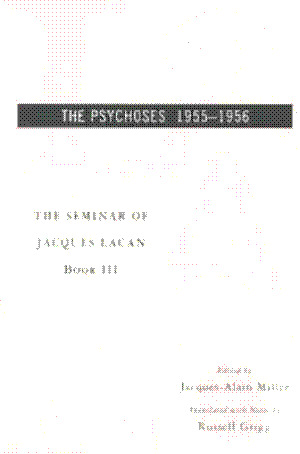
the psychoses
Jacques Lacan
lacan is known for writing obscurely but his earlier seminars are very clear. I like how he elaborates on certainty in psychotics and I feel like that was missing from the associated paper in ecrits, "on a question prior to any possible treatment of psychosis." he makes his infamous statement here about how he makes himself deliberately difficult to understand, but I think he has a point, just a little bit, if you think about how confident people can be in their complete misunderstandings of freud...
 books
books